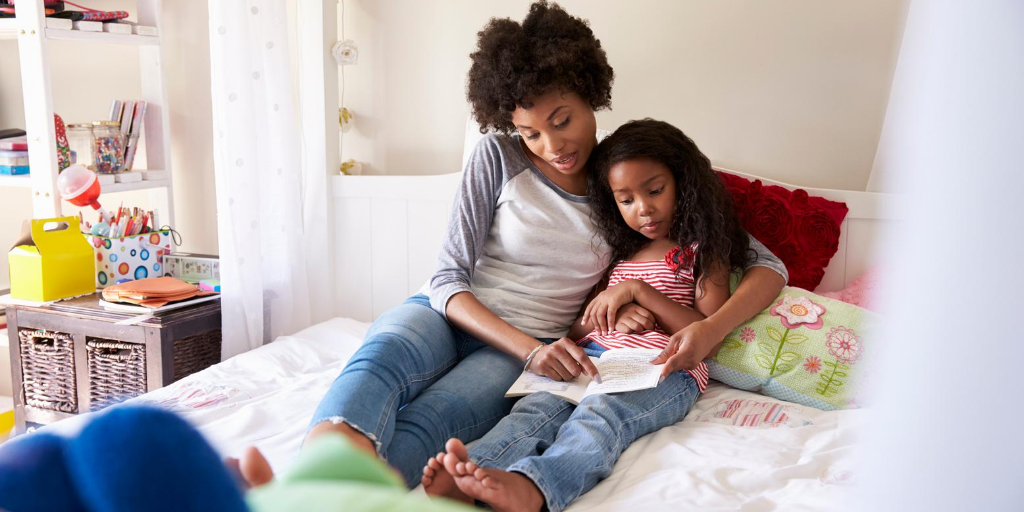Coping with Stories
My husband has been working from home for the last few months. Like many families, we have had to adjust our routines to accommodate the change. For us, this means my husband retreats to his “office,” a tiny room near the entryway of our home, for conference calls. In turn, I try my best to keep the kids quiet. Most of the time this works out well. But our house is small, and some days we all get an earful. I normally tune out the monotony of his meetings, but one particular call piqued my interest. The CEO of his company shared an anecdote about the children’s book Wemberly Worried, as a way of illustrating the fears and anxiety during this unusual time. When I was a school counselor, I read this book to children more times than I could count. And now, during a worldwide pandemic, a group of highly educated adults were essentially sitting through an elementary school counseling lesson. The moment perfectly illustrated the power children’s books have to help individuals cope with difficult times.
The concept of using books to teach life lessons is not new. In fact, there is an entire therapeutic modality dedicated to storytelling called bibliotherapy. While the term bibliotherapy was coined in the twentieth century, the practice of using books to heal dates back to Aristotle. There is even an inscription on the entrance of a sacred library in Thebes that translates to “healing place of the soul.” Books provide the reader with an escape and a chance to empathize with the plight of its characters. This ability to view other’s situations and draw value from it has been shown to be very beneficial. And as we continue to deal with the uncertainty in our world, the teaching and healing aspects of books have never been more important.

We have all heard about the importance of reading to children from an early age. Most research tends to highlight how reading facilitates language development, early literacy skills, and even promotes parent-child bonding. However, there is another equally important piece: the social and emotional benefits of storytelling. Books, especially picture books, are an excellent way to teach children social skills and help children manage difficult emotions.
Social skills are a term used to describe an individual’s ability to communicate, relate to others, and maintain relationships. This broad term encompasses learning to pick up on social cues, understanding intent, and interacting appropriately with peers. For most parents, this means how their children will fare on the playground and the friendships they will form throughout their lives. However, there are practical reasons for learning social skills that go beyond popularity.
Research has shown that good social skills correspond to better self-esteem. And there is plenty of evidence that children who feel good about themselves not only perform better in school but are less likely to engage in risky behaviors. Social skills are also learned behaviors. This means, a child’s ability to get along with others can be improved upon with practice. Parents can easily teach these skills using picture books. Below are five tips for using picture books to teach social and emotional skills.
1. Pick a topic that is relevant to your child. There are a wide variety of picture books that address many types of social skills. These can include books about specific emotions, work habits, coping skills, and behavioral issues. There are plenty of resources out there. Check out boystownpress.org for some great books.
2. Read the book and discuss the problem in the story. How did the main character solve the problem? Compare the problem in the story to some real-life examples that are relevant to your child. Highlight any similarities.
3. Talk about how the solution in the story can be applied in real life. Many books that are geared towards teaching social skills will provide helpful phrases, questions to ask, or steps to follow.
4. Practice. Role play situations with your child. Brainstorm possible responses or behaviors to implement. Create a list so that your child has some “tools” to refer back to.
5. Provide praise. When you see your child utilizing the skills you practiced, compliment them. It can be as simple as, “I really liked how you used your words to solve that problem.”
Books are a powerful tool that every parent can easily add to their toolbox. Reading books to your child boosts language and literacy skills and teaches valuable social skills that can positively impact their future relationships.
New on the Blog
Self-Care Strategies That Stick: A Blueprint for School Counselors (Part 3)
Part 3: How to build and sustain your personal self-care system Develop a self-care system that work...
Self-Care Strategies That Stick: A Blueprint for School Counselors (Part 2)
Part 2: Eight categories that comprise true self-care In recent years, self-care has become a popula...
Self-Care Strategies That Stick: A Blueprint for School Counselors (Part 1)
Welcome to this three-part blog series on self-care. In Part 1, we’ll explore why self-care is...
The Library: One of Education’s Most Valuable (and Overlooked) Allies
Nothing gets a college student’s attention like the word “free!” As some...
Six Steps to Safeguarding your Child’s Mental Health
Is there a Brad in your family? Brad is a typical middle school kid who just wants to fit in. He doe...
Peer Mediation Programs: Good for Students, Good for Schools
There’s something magical about giving power to students to resolve peer conflicts. No longer...






